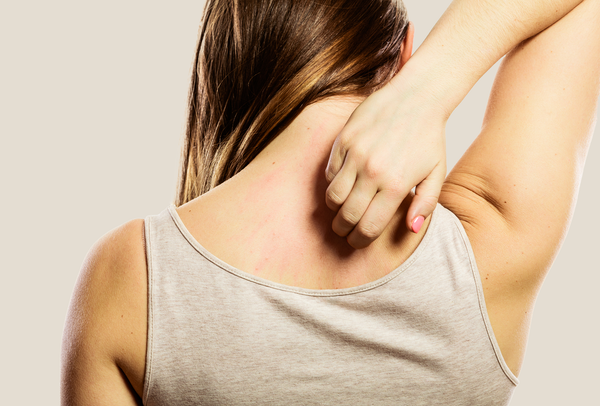If longer, stronger hair is on your wishlist, you’re certainly not alone. Hair growth products and supplements have become a beauty category all their own, and biotin may have started it all—but there’s a lot more to the story. Spoiler alert: There’s hardly any scientific evidence that backs biotin’s hair- and nail-strengthening reputation.
Before we dive in, let’s take a closer look at biotin. Also known as vitamin B7, the body does not produce biotin naturally, which is where a healthy, balanced diet comes in. Among the most robust dietary sources of biotin are fish, eggs, meat, nuts, seeds, and vegetables such as sweet potatoes.[1] It’s pretty easy for most people to obtain their daily dose of biotin and its associated fatty acids from their diet alone.
So how did biotin become the go-to supplement for hair growth? It’s safe to say this phenomenon indeed stemmed from science, since it’s a fact that those with a true biotin deficiency experience hair thinning and loss as well as brittle nails. However, biotin deficiency is extremely rare (and comes along with a lot more than beauty concerns).
Don’t shoot the messenger, but there is absolutely no evidence that biotin promotes hair growth. But don’t just take our word for it… According to Assistant Professor of Dermatology at Harvard Medical School and Director of the Lahey Hair Loss Center of Excellence and Research Unit in Burlington, Massachusetts, Maryanne Makredes Senna, MD, “Taking biotin for hair loss or hair thinning does absolutely nothing to regrow hair.”
This means that if you’re using a supplement that contains a complex of ingredients that includes biotin and think you are seeing results, biotin isn’t responsible for them. Even more, taking biotin supplements can interfere with lab tests for troponin (a biomarker for heart attacks) and thyroid function. (The FDA actually issued a warning about these side effects in 2017.)[2]
If you’re concerned about hair shedding or loss, it’s important to determine the cause before you start popping any pills. One of the most common reasons for significant hair shedding is a temporary condition called telogen effluvium, which often occurs three to four months after an illness (hi, COVID), significant weight loss, or a period of particularly high stress. Here’s the catch: If you take biotin to counter the effects of telogen effluvium, any regrowth you see is a natural part of the hair-growth cycle—not because of biotin. (Your hair would have started growing back naturally without it.)
Another main cause of hair thinning and loss is female or male pattern baldness, which are often the result of genetics and hormonal shifts. It’s important to see a dermatologist when you begin to notice changes in your hair, because once you know what’s really going on, you can take the proper steps to get your hair back on track. Early intervention is key for optimal results.
The bottom line: Biotin supplements are not the solution for, well, anything (other than true biotin deficiency). Biotin doesn’t work simply because biotin deficiency is most likely not the root cause of hair thinning or loss.
On the bright side, SEEN offers a different way to approach hair thinning and loss. A Harvard clinical trial showed that using our fragrance-free Shampoo and Conditioner as a regimen for six months reduces hair shedding by 44% in patients with female pattern hair loss.[3] These non-comedogenic products are also safe for sensitive skin and have received the National Eczema Association’s Seal of Approval™.
Stronger, smoother, healthier hair and happy, healthy skin are within your reach—without wasting your time and money on biotin supplements!
[1] https://ods.od.nih.gov/factsheets/Biotin-HealthProfessional/
[2] https://www.fda.gov/medical-devices/safety-communications/update-fda-warns-biotin-may-interfere-lab-tests-fda-safety-communication
[3] Randomized, controlled clinical trial conducted by the Hair Loss Clinic at Harvard’s Mass General Hospital. Fragrance Free SEEN Shampoo and Conditioner used as a regimen for 6 months. Study included 29 patients with female pattern hair loss, including control patients.




